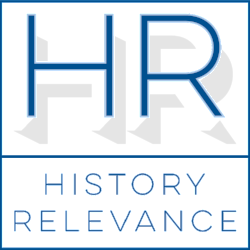by Bart Aikens, Singing Creek Educational Center Board Member
Read more about the importance of history here: https://www.historyrelevance.com
 Singing Creek Educational Center has recently endorsed History Relevance’s Value of History statement, which consists of seven core values. Allow me to share a few thoughts.
Singing Creek Educational Center has recently endorsed History Relevance’s Value of History statement, which consists of seven core values. Allow me to share a few thoughts.
As the VITAL PLACES TO LIVE AND WORK core value says, “No place really becomes a community until it is wrapped in human memory: family stories, tribal traditions, civic commemorations.” Singing Creek Educational Center provides that vital place where play and hands-on learning become our children’s preparation for life and work.
In this vital place we also nurture the IDENTITY core value by teaching kids “the stories of the many individuals and groups that have come before them and shaped the world in which they live.” We believe these stories plant seeds that grow and bear fruit in the course of a lifetime.
I grew up in Eugene and was once babysat by Luther Cressman, the “father of Oregon archaeology” who discovered the world’s oldest footwear in Fort Rock Cave the year my father (also an archaeologist) was born. Dr. Cressman bequeathed his fishing poles to me. I owe my love of our community and much of my identity to the examples of these two men.
The Value of History statement aims to help “change the common perception that history is nice, but not essential.” From my vantage point as one of Singing Creek Educational Center’s new board members, I am proud of our association with History Relevance’s project.
Bart Aikens

THE VALUE OF HISTORY STATEMENT
We believe that history – both knowledge of the past and the practice of researching and making sense of what happened in the past – is crucially important to the wellbeing of individuals, communities, and the future of our nation.
IDENTITY » History nurtures personal identity in an intercultural world. History enables people to discover their own place in the stories of their families, communities, and nation. They learn the stories of the many individuals and groups that have come before them and shaped the world in which they live. There are stories of freedom and equality, injustice and struggle, loss and achievement, and courage and triumph. Through these varied stories, they create systems of personal values that guide their approach to life and relationships with others.
CRITICAL SKILLS » History teaches critical 21st century skills and independent thinking. The practice of history teaches research, judgment of the accuracy and reliability of sources, validation of facts, awareness of multiple perspectives and biases, analysis of conflicting evidence, sequencing to discern causes, synthesis to present a coherent interpretation, clear and persuasive written and oral communication, and other skills that have been identified as critical to a successful and productive life in the 21st century.
VITAL PLACES TO LIVE AND WORK » History lays the groundwork for strong, resilient communities. No place really becomes a community until it is wrapped in human memory: family stories, tribal traditions, civic commemorations. No place is a community until it has awareness of its history. Our connections and commitment to one another are strengthened when we share stories and experiences.
ECONOMIC DEVELOPMENT » History is a catalyst for economic growth. People are drawn to communities that have preserved a strong sense of historical identity and character. Cultural heritage is a demonstrated economic asset and an essential component of any vibrant local economy, providing an infrastructure that attracts talent and enhances business development.
ENGAGED CITIZENS » History helps people craft better solutions. At the heart of democracy is the practice of individuals coming together to express views and take action. By bringing history into discussions about contemporary issues, we can better understand the origins of and multiple perspectives on the challenges facing our communities and nation. This can clarify misperceptions, reveal complexities, temper volatile viewpoints, open people to new possibilities, and lead to more effective solutions for today’s challenges.
LEADERSHIP » History inspires local and global leaders. History provides leaders with inspiration and role models for meeting the complex challenges that face our communities, nation, and the world. It may be a parent, grandparent or distant ancestor, a local or national hero, or someone famous or someone little known. Their stories reveal how they met the challenges of their day, which can give new leaders the courage and wisdom to confront the challenges of our time.
LEGACY » History, saved and preserved, is the foundation for future generations. History is crucial to preserving democracy for the future by explaining our shared past. Through the preservation of authentic, meaningful places, documents, artifacts, images, and stories, we leave a foundation upon which future Americans can build. Without the preservation of our histories, future citizens will have no grounding in what it means to be an American.
Read more about the importance of history here: https://www.historyrelevance.com

